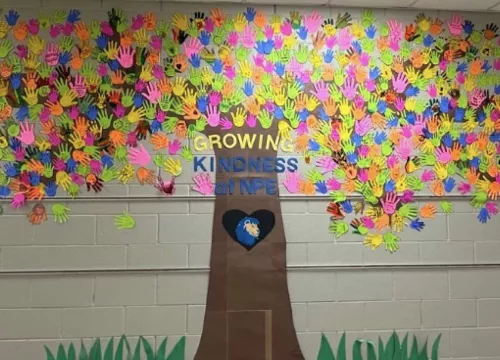Impact Story
Mental Health and Law Enforcement Alliance Project
Mental Health Aligns with Law Enforcement to Help Trauma Victims
Embedding mental health clinicians within law enforcement offices for early intervention and prevention of mental health issues related to trauma.
About the Project
The South Carolina Department of Mental Health (SC DMH) recognized a need to both expand the reach of mental health services statewide and strengthen mental health/law enforcement collaborations. Their solution was to embed mental health clinicians within law enforcement offices, enabling the clinicians to more quickly and proactively respond to the needs of communities, families, and children faced with trauma. This allows for early intervention and prevention of mental health issues related to trauma.
The grant from the BlueCross BlueShield of South Carolina Foundation allowed for the SC DMH to create a pilot program of alliance teams in five communities: Goose Creek Police Department, Dorchester County Sheriff’s Department, Lexington County Sheriff’s Office, Newberry County Sheriff’s Department, and Richland County Sheriff’s Department.
Project Goals
Alliance teams are made up of trauma and crisis intervention specialists collaborating with law enforcement officers. Within 24 hours of a traumatic event, these teams responded to police calls involving children or adults who have experienced trauma. They’re able to meet these individuals where they are, rather than making them come into a central office, while still providing a safe and secure space for anyone who has dealt with trauma.
Initial visits include short-term evaluations, allowing the clinician to identify those who are at risk of mental illness and refer anyone who needs it to nearby community mental health centers for additional support services and follow-up.
A pilot program of five agencies has become a fully-fledged program of 22 agencies.
Project Results
The project allowed SC DMH and law enforcement officials throughout the state to pilot a model that can be repeated and reproduced across South Carolina.
In the five counties of the pilot program:
- 1,600 individuals were served.
- 250+ consultations were provided by clinicians to their embedded agencies.
- 187 collaborative follow-ups were held.
- 70+ interdisciplinary meetings were attended by project staff.
There are now 22 agencies in South Carolina which have requested embedded clinicians. These represent Sheriff’s Departments, Police Departments, and Departments of Public Safety in the Upstate, Midlands, Low Country, and PeeDee.
We have successfully been able to sustain and expand this model statewide. We have embedded clinicians in more than 14 agencies with the hopes of adding more in the near future.”
- Stacee Rowell, Alliance program coordinator at SCDMH


